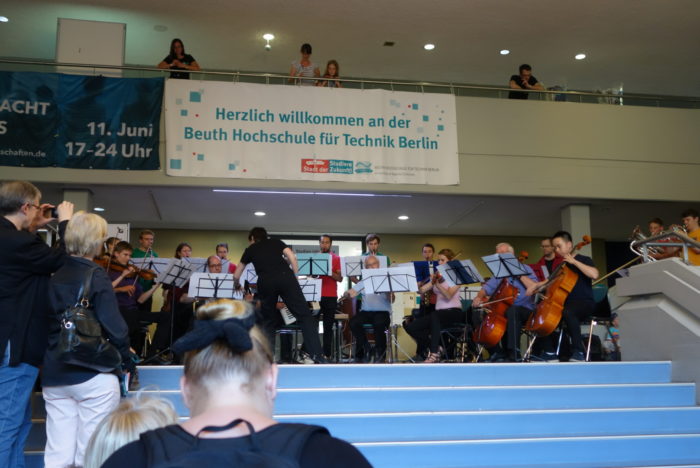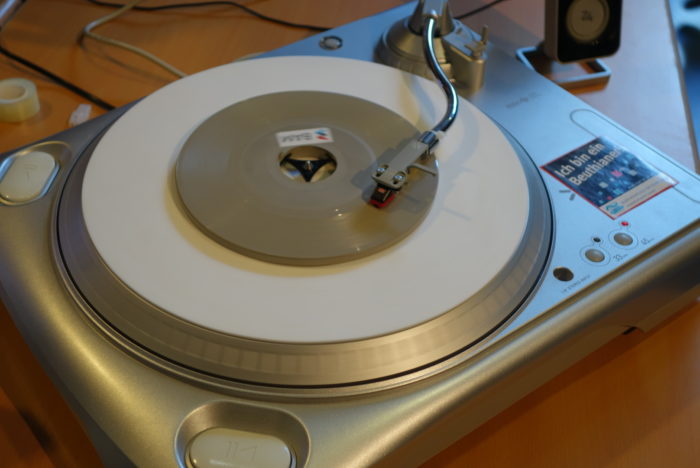4th July 2016 Berlin, Germany
Late night science in Berlin
What a great tradition to have: the long night of the sciences! London museums have late-night openings, but imagine if it wasn’t just one museum but research institutes, universities and museums all at once. This is exactly what happens in Berlin and Potsdam once a year on the “long night of science”. For inquisitive SIN officers it is a chance to discover new institutes, meet enthusiastic scientists and learn new exciting facts. This year – on 11 June – over 29,000 people were out and about doing experiments, listening to lectures and having fun at more than 70 scientific institutes.
With so many exciting institutes to choose from, sometimes looking at the programme can be quite daunting. Experience has taught the SIN team in Berlin that it makes sense to choose one place rather than getting the shuttle buses across the city and spending half the night on the road. My fellow SIN Officer Heike Hammelehle has been attending the Long Night for over ten years and knows all the tricks. Over the years Heike has visited a wide range of institutes across Berlin and even participated in the VIP tour for embassy science attaches. She has been taking her son along for a number of years now because they have great activities for kids and lots to inspire young adults to pursue a career in science and research.
This year Heike and I both independently decided that it was time to check out the Beuth University of Applied Science in the northern district of Wedding. And what a great decision it was! There was such a wide range of stands with very enthusiastic professors willing to take the time to explain the different experiments. One of my favourite was using a mathematical technique to establish the optimum recipe for lemonade! And there was so much more: a Foucault pendulum, a record made from concrete, a robot goalkeeper who was very difficult to score against, giant planets on the lawn outside and a cohesion app, which aims to help strangers find common ground more quickly. I think my favourite part was the greenhouse where I not only saw how LEDs are extremely effective for growing pak choi, but also did a blind taste test with organic and non-organic tomatoes. I have to say the organic ones really do taste better!


It was a really fun night and such a great way of communicating the importance and fun of science to the public. The UK has a long tradition of science festivals which have a similar feel to Germany’s long nights of the sciences (they take place in other cities in Germany as well). The SIN Europe team is already looking forward to experiencing some of the buzz of Science in the City in Manchester at the end of July, where we will meet as a region to discuss future projects and attend ESOF. We’ll be a able to see how it compares to its German equivalent.